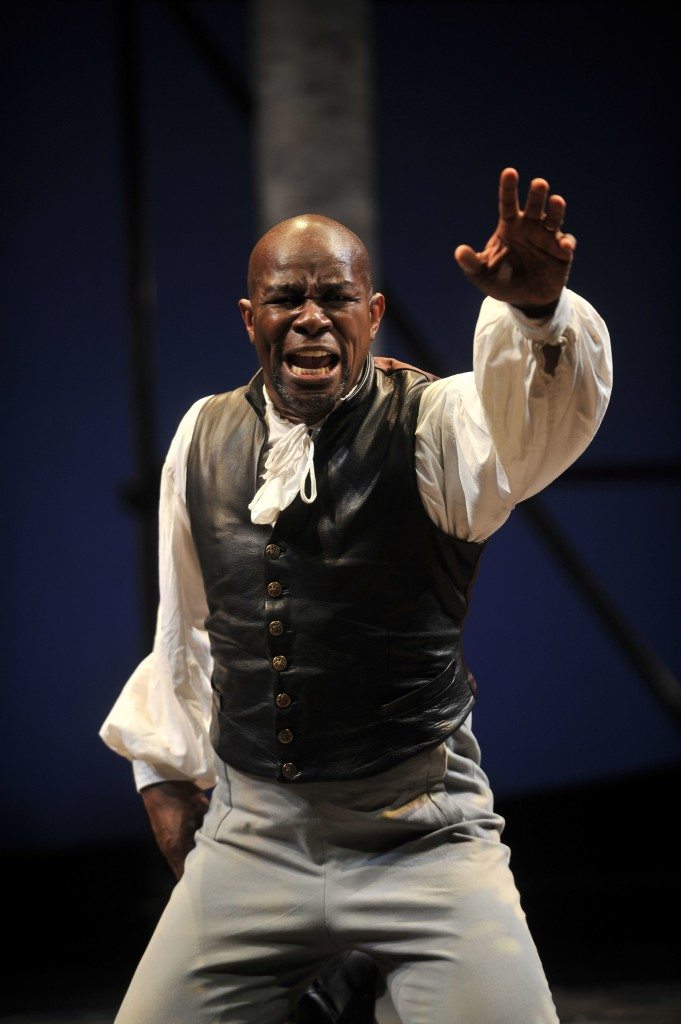Allyn Burrows will soon have to satisfy over 600,000 people. As the newly appointed artistic director of Shakespeare and Company, he will oversee all of the programming, workshops, and community programs for one of the largest, year round Shakespeare festivals in the country.
The 39-year-old organization, located in Massachusetts’ beautiful Berkshires, attracts both local and international visitors and aims to produce plays by the Bard as well as contemporary works.
Manhattan Digest recently spoke on the phone with the New England native to discuss his vision for the theater company and his passion for the world’s most renown writer.
MD: Congratulations on your new role!
AB: Thanks! I’m really amped up about it. It’s not totally unfamiliar territory as I’ve been running it from the opposite side of the stage for the past few years. I was also an artistic associate and one of the original artist managers and was on the board for 13 years.
MD: The Founder of Shakespeare and Company, Tina Packer, has talked at length about the importance of Shakespeare and her passion for his language and works. What do you find so vital about his body of work?
AB: The connectivity of the daily human experience and how it is constantly evolving. I’ve been working in this material my entire adult life. I played Shakespeare in a play called The Last Will by Robert Burstein. Through that, I got a new take on the man as writer. It gave me a new outlook on how to approach the language. I’ve always been fascinated with language from an etymological experience. We’re able to pull it apart and find out what resonates between our line of ancestors and among our peers– and in society as a whole. It’s got a tonal quality and musicality and it lifts people to a sense of community with each other. It’s never-ending in its satisfaction. You don’t find that type of nourishment in any other writer. It just keeps on giving. He really pushes and challenges us.
MD: Theoretically speaking, what do you think Shakespeare would write about the current state of the world today?
AB: I don’t think he would take the bait. I think that he would put it in a larger framework and greater context. Everyone lays claim to Shakespeare’s perspective and they claim a lot of ownership on his point of view. I think his words are always open to debate, but I don’t think he would be surprised by the unpredictability of humanity today. That’s where we find ourselves right now; in a state of incredulity. Shakespeare wouldn’t be surprised by how mercurial we human beings can be. I think he’d be off in the corner smiling—and perhaps melancholy-about what we’ve done to ourselves
MD: What ideas in terms of audience engagement do you foresee for the company?
AB: We’re going to start by building a theatre outside. There will be a small theatre in Shakespeare’s garden so people can come and have the Berkshire experience that Shakespeare and Company was once known for. Patrons can sit under the stars, pop a bottle of wine and take in a play outside.
Given the fact that he’s a quiet revolutionary, there is something decidedly American about Shakespeare, so I’m also interested in exploring other American writers. I’d like to our audience to see our company members do some of these other important works that have grown out of this landscape. We’ll have three theaters running at the same time. I really want to make Shakespeare and Company a destination spot.
MD: The trend right now in theater tends to be one with a political tilt. As you look ahead to programming in the next four years, do you want to produce works that are attune to the political climate or do you want to do more escapist, lighthearted fun.
AB: I think we want to do things by way of reflection, but there is nothing wrong with escapism. To that point, I think it’s important to do both. It’s really important for us to put forward more works by female writers and by people of color—but it’s also important to speak out. We have to identify how things have gone off the rails but do that in conjunction with some beautiful works as well. We’re never in it for sheer entertainment value. We always have to do works in a way that make us present in the world.

MD: Shakespeare and Company has quite a bit of community outreach, including Shakespeare in the Courts and educational involvement. Are there any new programs that you’d like to implement?
AB: Yes. It’s really important for us to engage the community, especially during the off season. Basically, they are the ones who are hosting us here so we want to be sure to give back. That means being in conversation with locals about what kind of programming they want. The fall festival of Shakespeare is huge and we want to continue that. It’s a jubilant, non-competitive event for high schools to come together to support each other and address things that are important to them. It’s a freakin’ rock concert as we do shows back to back. The students are hanging from the rafters!
MD: When will your season be announced?
AB: Early February.
MD: Great! We’re looking forward to it!
For more information about Shakespeare and Company, click here.
